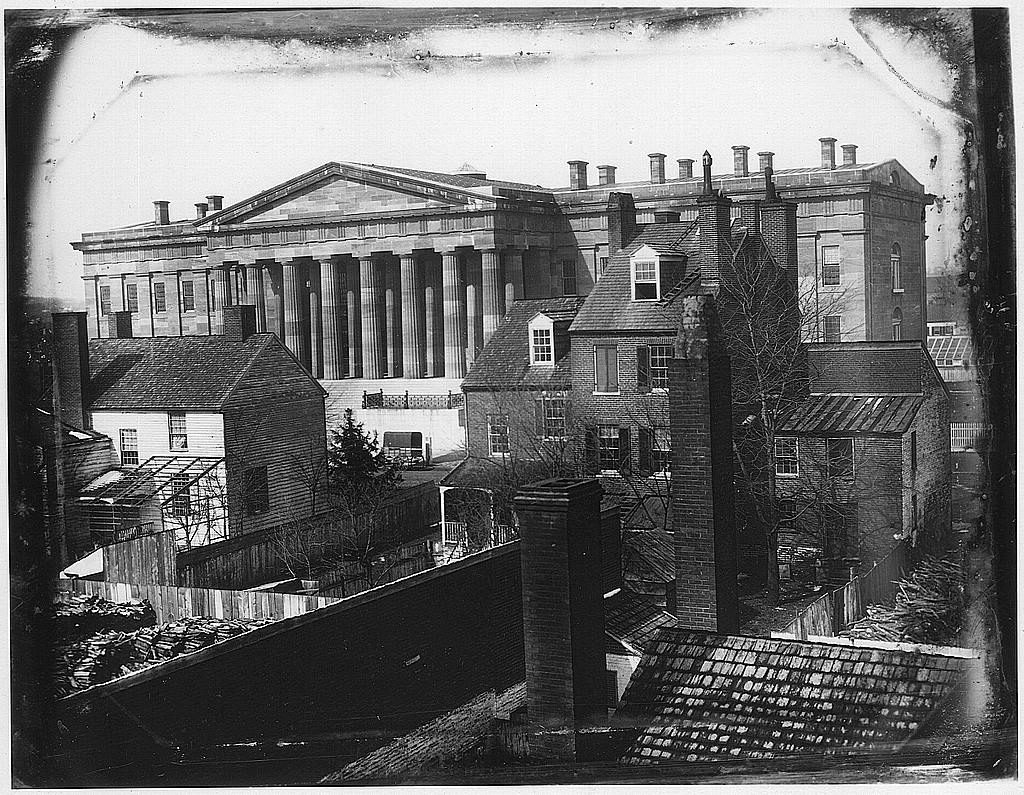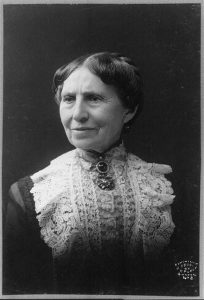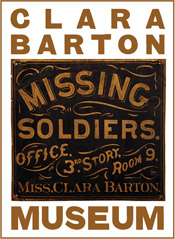Clara Barton Broke Barriers for Nineteenth Century Women
Most people, if they have heard of Clara Barton, know she was a nurse during the Civil War and/or she founded the American Red Cross. People often forget she was so much more than that. In this series of posts we will highlight what people should know about Barton from her extensive nursing career, to her time as an educator, and as an international relief organizer – just to name a few things. The goal is for these posts is to demonstrate just how amazing and multifaceted Clara Barton was in a way modern history textbooks just don’t capture.
For many reasons, Clara Barton is considered a trailblazing activist for women’s rights and by both her contemporaries and modern people worldwide. She was hired as a clerk at the Patent Office in 1854, at the same rate of pay as the men. Barton’s job at the patent office made her one of the very first women to be employed by the federal government, and the equal pay with men was unheard of at the time. While her position was subject to the vagaries of politics, and she encountered harassment from her male coworkers, she persevered and worked at the Patent Office until 1865.

The US Patent Office c 1846 where Clara Barton worked.
Barton’s work as a Civil War nurse was somewhat atypical as well. At the time it was very unusual for women to be caring for strange men in intimate situations that hospitals demanded. Clara Barton took things a step further than most women by going directly to the battlefields to help wounded soldiers, something only a few women were able to do.
Barton was keenly aware what she was doing was uncommon. Looking back with years of hindsight, she commented that, not only were her battlefield nursing duties challenging for her, but they would be for any man. “When our armies fought at Cedar Mountain, I broke the shackles and went into the field. Five days and nights with three hours’ sleep—a narrow escape from capture—and some days of getting the wounded into hospitals at Washington…And if you chance to feel that the positions I occupied were rough and unseemly for a woman—I can only reply that they were rough and unseemly for men.” Ultimately, that was how Barton thought of herself – the equal of any man.
Barton was also an early lobbyist, tirelessly pushing influential politicians to adopt the Treaty of Geneva and establish the American Red Cross. She pursued these causes throughout the 1870s until she was finally successful in 1882. She was one of three delegates from the United States sent to the Third International Red Cross Conference in Geneva in 1884—and the only female delegate present. What is known as the “American Amendment,” which broadened the scope of the work of the Red Cross to include natural disasters, was passed at the conference, mainly due to success of Barton’s disaster relief work in America and her advocacy of the amendment.
The rights of women were important to Barton, specifically “the right [of a woman] to her own property, her own children, her own home, her just individual claim before the law, to her freedom of action, to her personal liberty” as she put it. She supported her friends Susan B. Anthony, Elizabeth Cady Stanton, Frances D. Gage, and other suffragists in their cause to win the right to vote for American women.

Clara Barton, 1904. Even in her later years, Barton was an advocate for women’s rights.
Barton very publically spoke in favor of equal rights for women. For example, in 1882 Barton delivered a lecture extoling the role Anthony, Stanton, and others played in allowing her to be such a public figure during the Civil War. “You glorify the women who made their way to the front to reach you in your misery, and nurse you back to life. You called us angels. Who opened the way for women to go and make it possible? … For every woman’s hand that ever cooled your fevered brows, staunched your bleeding wounds, gave food to your famished bodies, or water to your parching lips, and called back life to your perishing bodies, you should bless God for Susan B. Anthony, Elizabeth Cady Stanton, Frances D. Gage and their followers.”
Barton’s accomplishments can perhaps best be summed up in a letter she wrote to a friend after the war. “The door that nobody else will go in at, seems always to swing open widely for me.”
This is the second in a series of posts about the many facets of Clara Barton’s career. Click below to be directed to the others.
Tags: American Red Cross, Clara Barton, Elizabeth Cady Stanton, Frances D Gage, Patent Office, Susan B Anthony Posted in: Clara Barton: American Legend
